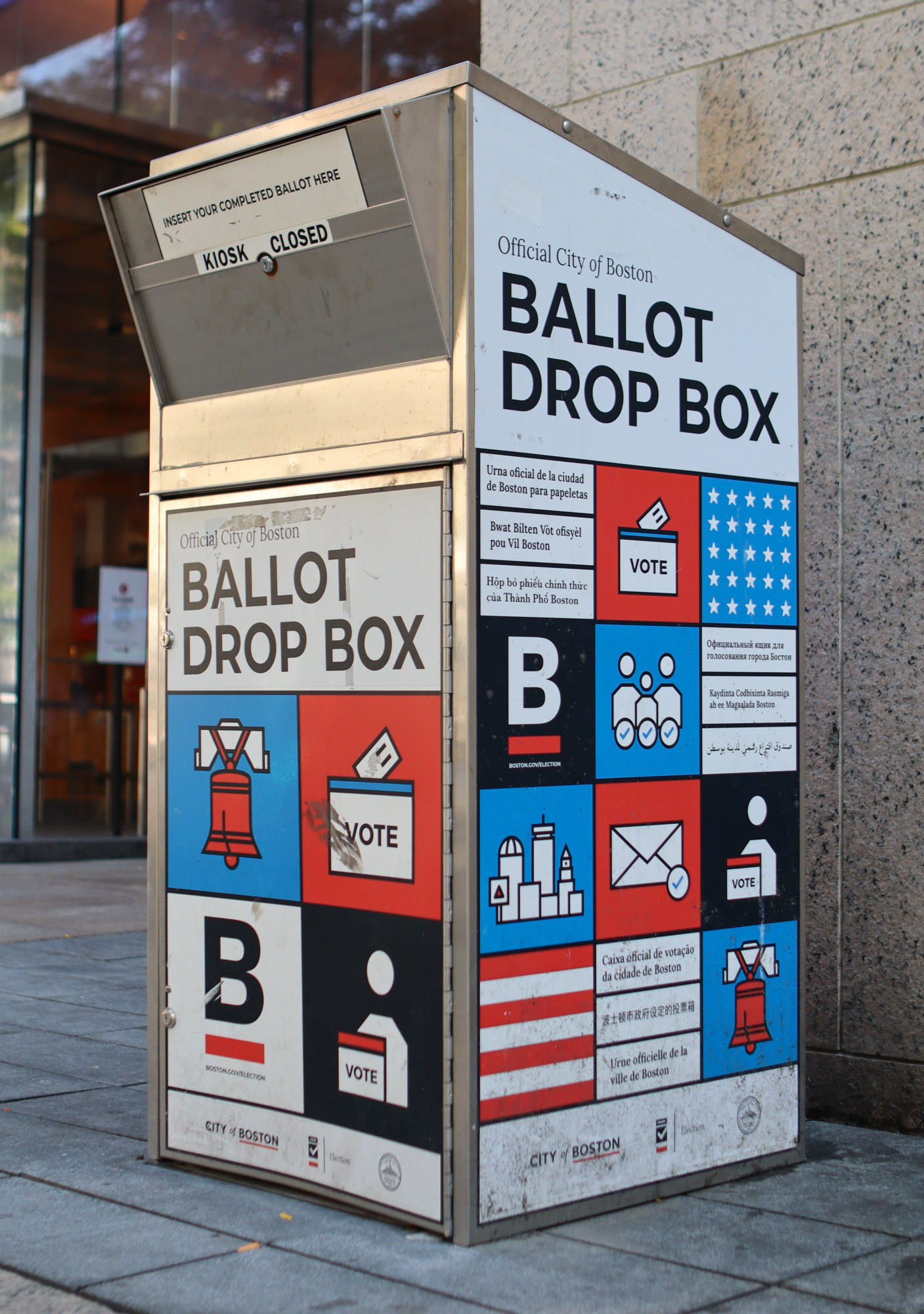Along with deciding the next president, Massachusetts voters will also decide on five key ballot questions on Tuesday.
The ballot initiatives include allowing the state auditor to probe the legislator, repealing the MCAS graduation requirement, allowing rideshare drivers to unionize, legalizing psychedelics and raising the minimum wage for tipped workers.
Question 5: Increasing wages for tipped workers
Voters were conflicted in deciding on Question 5, which would gradually increase tipped workers’ wages over a five-year period.
Jessica Mitten, a public defender from Boston, was uncertain about how to cast her vote on the measure and said she was “balancing competing interests.”
“I am against the tipping culture system as a whole, but I also recognize that it probably is gonna harm servers in the immediate,” Mitten said.

May Nerudova, 23, a barista, said she believes tipped workers should make tips on top of the $15 minimum wage.
“It’s only a way of control, and I want there to be a fair wage plus tips on top,” Nerudova said. “[It] eventually leads to back-of-house maybe sharing in the profits that the business makes.”
Question 4: Legalizing psychedelics
Question 4 looks to legalize and regulate natural psychedelic substances. If passed, people 21 and older would be allowed to use psychedelics at licensed therapy centers.
Alex Alaev, an IT consultant who lives in Newton, voted “no” on every ballot question except Question 4.
“Grow whatever you want,” Alaev said. “Just don’t go to jail, because I’m paying for that.”
Question 3: Rideshare app drivers unionizing
Question 3 asks if Uber and Lyft drivers should be allowed to unionize. Passing the measure means the state would establish new regulations for drivers to negotiate for better benefits.
According to a previous statement to The Daily Free Press, Uber said nearly 80% of its drivers support the current agreement with the Massachusetts Attorney General’s Office, which does not allow drivers to unionize. Uber stated it plans to address language issues the company has with the measure in its next legislature session.
Randy Bell, who works in immigration, voted “yes” on Question 3.
“I was like, ‘Were we not allowing that before?’” Bell said. “I feel like [workers] should have the right to unionize.”
Nerudova, a “proud former union member,” voted “yes” on every ballot question except for Question 3.
“I ended up voting ‘no’ on [Question] 3, specifically at the request of rideshare worker organizers who are extremely pro-union but believe this doesn’t go far enough,” Nerudova said.
Question 2: MCAS graduation requirement
In order to graduate high school in Massachusetts, students must pass the Massachusetts Comprehensive Assessment System. Question 2 has received mixed reviews from both parents and teachers.
James Damon, a stay-at-home dad in Boston said he does not “have a lot of skin in the game” for the ballot questions other than Question 2.
“Part of what makes Massachusetts such a great state in terms of education is that the MCAS is there kind of as a guardrail,” Damon said. “As my kids get older, it’s going to be a thing.”
Meanwhile, Lea Morgan, who was an assistant teacher for 22 years, said she was never in favor of the MCAS graduation requirement neither when she was in high school, nor when she was teaching.
“[The MCAS] doesn’t really show the kids’ potential,” Morgan said.
Jonathan Lopez, a sales associate, said the MCAS question was important to him because he used to be a Boston Public Schools student.
He said as a student, he faced pressure from teachers when taking the MCAS although he felt like the test was “unnecessary.”
“It kind of set us up low-key for failure in some aspects,” Lopez said. “We didn’t always get the tools that we needed for those certain tests, especially in public schools, when we don’t have the funding like other certain schools.”
The question has also divided politicians. Sen. Elizabeth Warren declared she would be voting in favor of the ballot, while Gov. Maura Healey urged against it.
Question 1: Authorizing the audit of a state legislature
If passed, Question 1 would give State Auditor Diana DiZoglio the authority to audit the state legislature.
A recent poll from the University of New Hampshire shows the majority of voters support Question 1.
Phillip Granberry, a social demographer for the City of Boston, said in reference to the ballot questions, “I wish we’d stop them.”
“I think direct democracy is problematic,” Granberry said.
Reported by Emilia Wisniewski, Gabriel O’Hara Salini and Charlie Johnson.

























































































































